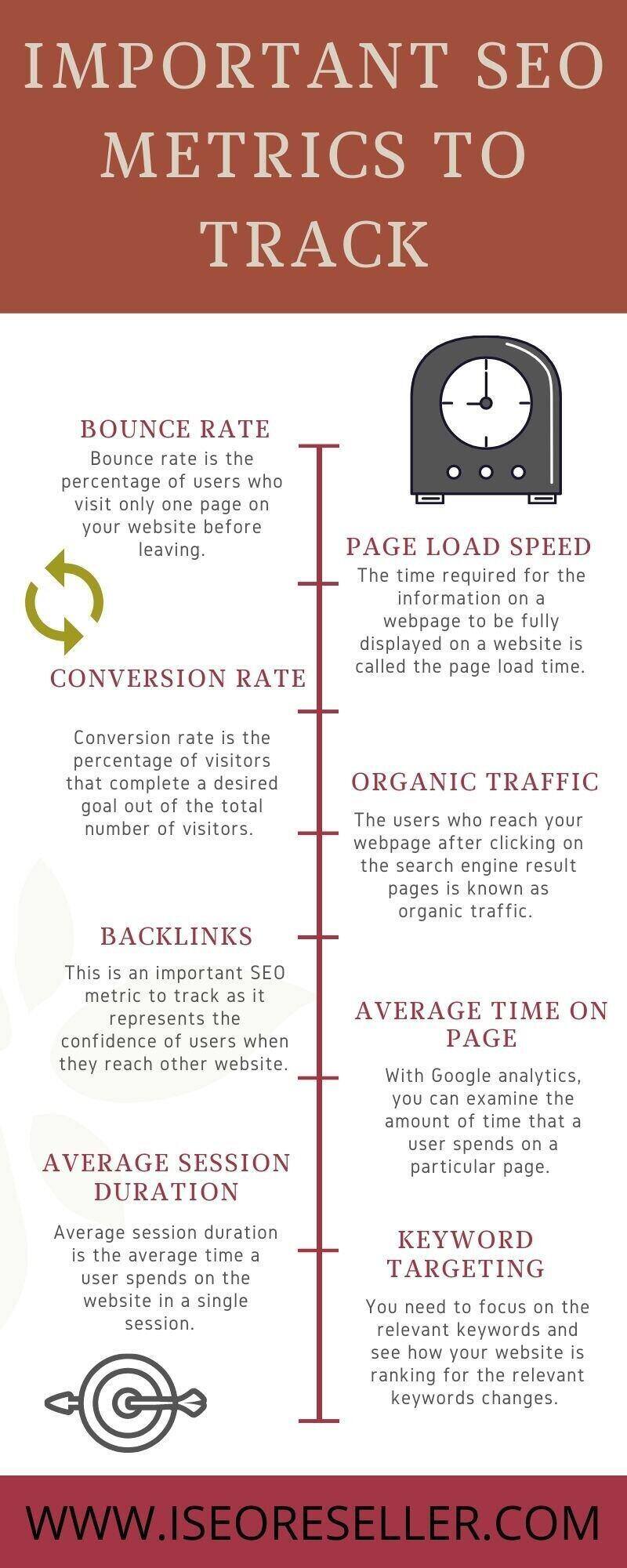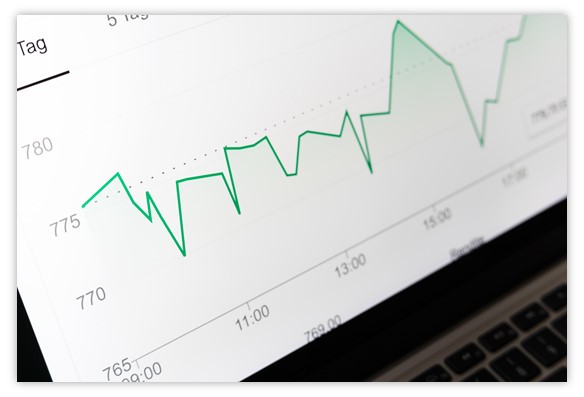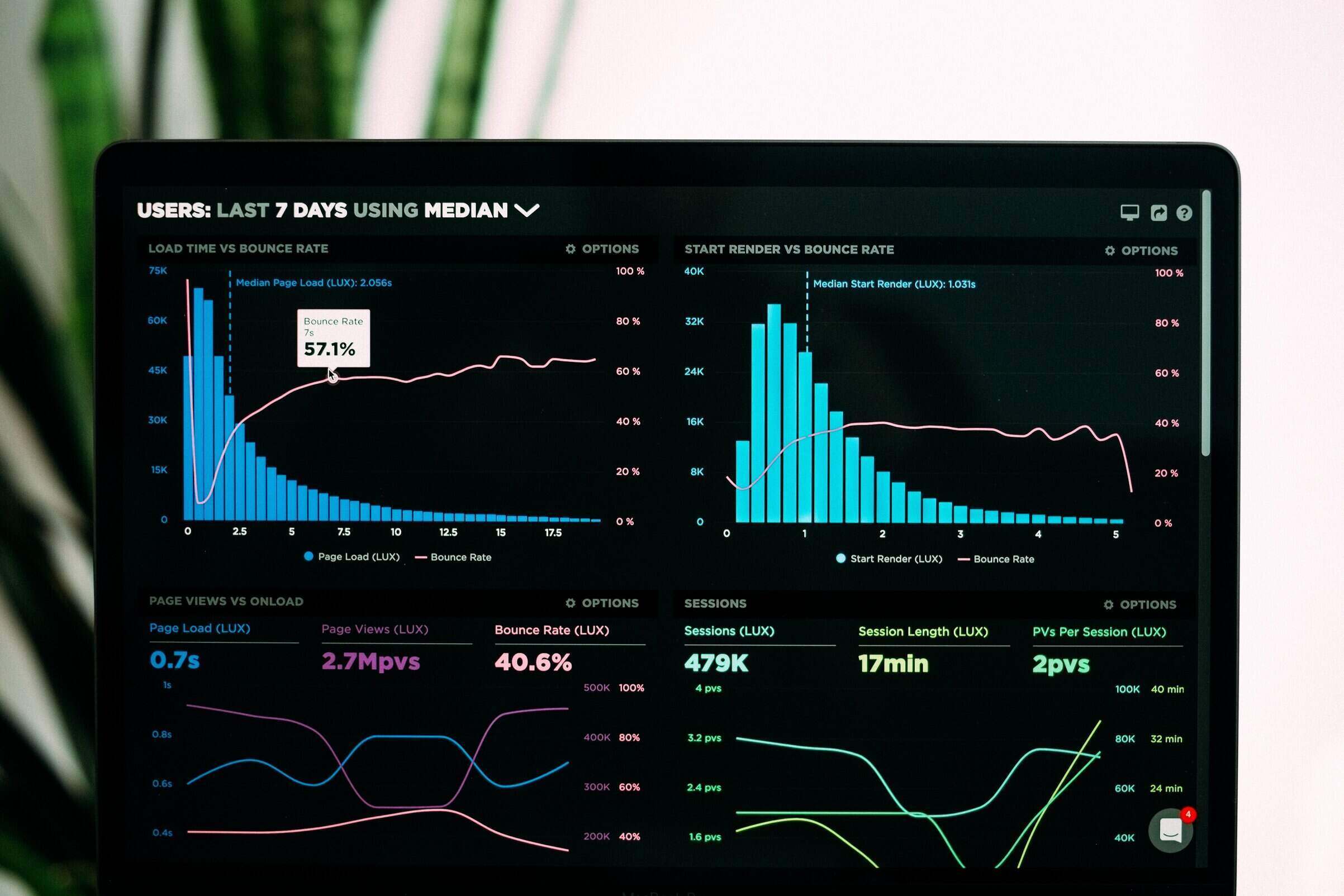One of the best advantages of digital marketing over traditional marketing is that it helps you to keep track of PPC ads and SEO campaigns. As the saying goes, “what can be measured can be managed”. This is the best part of SEO, as the data from various SEO metrics can be easily worked upon to improve the performance of the SEO campaign. With a timely SEO audit, an SEO company can figure out what factors need to be worked on like website speed, content marketing, improving backlinks, etc. to increase the visibility of the website and stay ahead of your competitors.
With nearly 2 trillion searches a year on Google, the largest search engine platform provides the opportunity for an SEO company to attract the target audience within the niche and increase the chances of moving them down the sales funnel. When running an SEO campaign, you need to measure the performance of your website for organic search results. In order to track the search engine marketing performance, an SEO company needs to monitor the various SEO metrics that help in determining the top-performing pages, converting keywords, etc.
Whether you look at website rankings, organic traffic, generating leads, etc. SEO metrics give key insights into exactly how your SEO strategy is performing. With various data points to track in Google Analytics, some of the most important SEO metrics that help rank higher in the SERPs, boost brand awareness and increase sales are mentioned below. By tracking these SEO metrics, you would be able to measure the web page performance results and identify new website optimization opportunities.
What is Google Analytics?
Google Analytics is a free web analytics tool offered by Google that you can use to track and analyze the performance of your website. In every digital marketing strategy, data plays a very important role to achieve the desired business goals. Google Analytics provides easy-to-read interactive reports so that you can make smart decisions to drive website traffic and retain the trust of customers. This gives an exact performance report of your SEO marketing strategy so that you can further take the necessary steps to optimize the SEO campaign performance.
Your website is the nucleus of online presence and is the vital place that has the answer to the product or services your business is providing. With data from the analytics report, you can make smarter decisions about your SEO campaign and improve the content on website, increase conversions, improve user experience and many more. Instead of randomly working on changes Google Analytics helps to improve the campaign performance based on exact data and then decide which metrics to work on and what to leave. You can work on basics like URL speed test, optimizing landing page interface, etc. Tracking various SEO metrics, you can figure out the user navigation pattern on the website, and measure the advertising ROI.
Important SEO metrics to track in Google Analytics
As the first five results that show on Google get nearly 67% of all clicks, you cannot miss the opportunity to measure important SEO metrics that help in increasing traffic to your website and get the desired results. SEO is a vast field and there are many metrics to focus on but some of the important SEO metrics to measure in Google Analytics are discussed below:

1. Bounce rate- Bounce rate is the percentage of users who visit only one page on your website before leaving. This is a single-page session as the user does not navigate through different sections on the website (if it has multiple pages) or does not take any action (if it has a single page). The prime reason for a high bounce rate could be the lack of great content on the website.
Many a time, users do not find the relevant content that they saw at the time of clicking on the website. Other reasons could be that the website has no internal links, lacks appropriate page speed insights, the website does not have mobile-first indexing and remarketing is not performed appropriately in the marketing campaigns. To lower the bounce rate, you should consider writing engaging content, updating the content with the marketing trends, use of high-traffic keywords and writing eye-catching meta descriptions.
2. Page load speed– Page speed is a measurement of how fast the content loads on your webpage. The time required for the information on a webpage to be fully displayed on a website is called the page load time. This is one of the points that many advertisers think is not of much significance but in reality, it is one of the most important point to have in your SEO metrics to-do-list. The importance of page speed can be understood from the fact that 40% of users leave a website that takes more than 3 seconds to load. If the page speed is slow, the bounce rate of the website goes high which negatively affects the ranking of your website on the SERPs. With Google’s page speed insights, you can get an idea about how fast your content is displayed to the user.
To improve your page load speed you need to work on optimizing images, improve server response time, reduce redirects, choose the right hosting options, minimize JavaScript, include mobile-first indexing, etc.

3. Conversion rate– Conversion rate is the percentage of visitors that complete a desired goal out of the total number of visitors. A high conversion rate indicates a successful search engine marketing strategy and means that users are getting what they are searching for. Tracking the conversion rate informs you about the performance of your SEO campaign and what changes need to be done to increase sales.
To escalate your SEO conversion rate, you need to have an eye-catching website design and all the subsections organized properly so that user navigation becomes easy. You should consider adding videos on the web page, adding strong call-to-action, and adding high-quality product images. You can perform a/b testing to know which version of your website drives better result.

4. Organic traffic– The users who reach your webpage after clicking on the search engine result pages is known as organic traffic. The ultimate goal in search engine marketing is driving organic traffic to your website to make all your SEO marketing efforts yield the desired results. Organic traffic can be said as the holy grail of SEO, as it is free and you do not have to pay any amount to increase traffic on the website.
Organic traffic is an important SEO metric to track, as it comprises the effectiveness of your SEO brand, social media marketing efforts, use of relevant keywords, etc. Although SEO is not traffic-free but to boost organic traffic to your website you need to work on SEO marketing strategies that involve writing effective guest posts, keep active social media pages, etc. that helps in increasing the website’s visibility on the SERPs.

5. Backlinks– Backlinks are links that are created when one website links to another. These are also known as “inbound links” and are an important SEO metric to track as it represents the confidence of users when they reach another website. If there are many links given to a particular website and users reach the web page, then it signifies the point that the users are finding the content relevant and the website is trustworthy. So, these backlinks have a positive effect on the website’s visibility in the SERPs.
With Google Analytics, you can see how people are finding your website and the websites that are bringing the most value to your web page. After tracking this metric you can build a quality backlink profile that helps in gaining better search positions and ignore those that impact the website ranking negatively. In your backlink strategy, you need to make sure that the links come from authoritative pages and relevant websites so that your website is not harmed.
6. Average time on page– With Google Analytics, you can examine the amount of time that a user spends on a particular page. While bounce rate informs about the percentage of visitors that leave your webpage without taking any action, average time on the page gives an idea about how much time a user spends on a webpage before clicking a link to proceed to another page. This would help you understand how good the user experience is and how well your marketing efforts are targeting the relevant audience. Average time is the indicator of user engagement with your website.
A high average time on the page indicates that the user is interested in your content and likes exploring your website. To improve the average time on page you can add a short video about the product or services, provide content with user-friendly languages, writing great content, and answering the common questions through FAQs.

7. Average session duration– Average session duration is the average time a user spends on the website in a single session. A session in Google Analytics starts by default when a user views a page on your website and leaves the page after 30 minutes of inactivity. But you can adjust this limit and so a session can last from a few seconds to several hours. Everything that a user does during this duration is known as a session. But it is not necessary that the user will continue to stay for 30 minutes. Those sessions can be completed on the same day, in a week or months. So, the number of times that the user reaches the web page and spends some time then it is calculated as another session.
Google Analytics calculates average session duration by dividing the total duration of all sessions (in seconds) during a specified time frame by the total number of sessions during that same time frame. E.g. If the user spends 180 seconds on the first visit, 120 seconds on the second visit, 150 seconds on the third visit, then the total number of sessions for the user is three. So the average session duration will be calculated as the sum of all durations (180seconds + 120seconds + 150seconds) divided by 3. This metric gives a good idea about user engagement and how much they find the content in relevance to what they are searching for.
8. Keyword targeting– As you focus on increasing your website ranking the prime aspect to focus on is to target the relevant keywords. You need to focus on the relevant keywords and see how your website is ranking for the relevant keywords changes. Google Analytics would help you analyze the keywords that drive traffic to your website. With proper keyword research, you can find the keywords relevant to the product or services that you offer.
You can then work on an SEO strategy to optimize these keywords so that the users click on your website whenever a search query is made for these keywords. With this information, you can work on optimizing the keywords that bring more relevant traffic.
Importance of Google Analytics for SEO
Google Analytics is an extremely important tool when it comes to SEO as this helps to know the overall performance of your website. This gives you an insight into how visitors reach your website, what time they spend on the web page, average time on page, user navigation on the website, etc. so that you work on SEO strategies to improve the SEO campaign performance. Some of the benefits of using Google Analytics to track the SEO metrics are mentioned below:
• Free of cost
• Provide exact data reports
• Find out how visitors locate your website
• Identify the pages that the visitor clicks the most
• Discover the right platforms for advertising
The SEO data is comprehensive and accurate that helps to gain insight about your target audience, perform demographic targeting, etc. that best suit your customers’ needs. With this report, you can figure out what changes are to be done to the SEO campaign. You can then work on optimizing the images, writing great content, have great product descriptions, etc. that make the visitor finally convert into a customer.
With the analytics report, you can figure out the keywords that bring in high traffic to your website and work on optimizing the keywords that are low-performing. Thus, tracking different metrics in Google Analytics will open a world of information about your website and you can work on SEO strategies that help in increasing sales and achieve your business goals.
Wrap up
Measuring the results of various SEO metrics is an important part of the search engine optimization process as this helps to know what changes need to be done to improve SEO marketing strategies. The reports from these SEO metrics would help you gauge search engine marketing strategy and what steps need to be worked on that provides the desired business results. Tracking SEO metrics like organic traffic, bounce rate, keyword rankings, backlinks, etc. in Google Analytics would help you to know the performance of your website. To get a more accurate idea of your SEO efforts you will have to spend some time that helps in determining your business goals. If you find the process hard, you can get in touch with a digital marketing company that excels in local SEO, content marketing, SEO audit, working on backlink, etc. and uncover great results for your business.
References
• 9 Important SEO Metrics to Track (+ How to Improve Them)
• Top 13 SEO Metrics to Track Content Performance & Engagement
